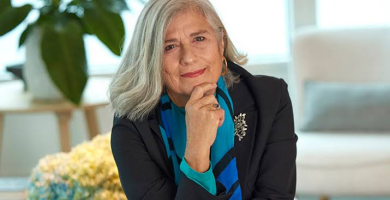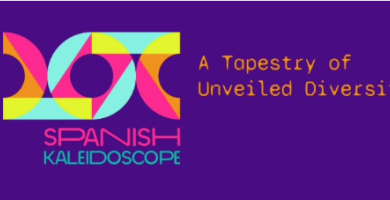
Isona Passola: "Barcelona's diversity can provide a perfect film"
We interviewed Isona Passola, President of the Catalan Film Academy and producer of Incerta Glòria, Agustí Villaronga's latest film.

- How did the idea of adapting the novel Incerta Glòria come?
When I was studying in the United States, David Rosenthal, the American who translated Tirant lo Blanc, a Catalan novel that became a bestseller in the States, came to me and he said, "For me, Incerta Glòria is the most important novel written in Catalan". I really liked it, partly because an American told it to me. I had read the novel at the age of 16, because of the insistence of my father. Then it was only a shorter version of what we know now, because of the censorship.
There has been more than one person interested in making a film version of the novel. Among all the proposals, Maria Bohigas, Joan Sales’ granddaughter, wanted Agustí Villaronga to be the director.
- How was the shooting at Pla de Palau, located in the middle on Barcelona’s city centre?
It was such a big challenge for all of us. For the City Council, ICUB (culture institute of Barcelona), the Barcelona Film Commission, the police, producers, neighbours, merchants... it was a major challenge, but also really interesting because we had only one chance to do it. Within two months of shooting and according to the planning of the shoot, we had to do it on a Sunday. It was essential to harmonize different interests crossed: the needs of realization; the activities of other groups with a program in the same area; respect for neighbours... even so finally we were able to reach an agreement. In terms of logistics it was also very complicated. We had to work at night without making noise and being very respectful in order not to affect people's lives, the city, neighbours, etc. It was a challenge!
- And how was the relationship with the Film Commission?
The Barcelona Film Commission was who helped us to do our shooting as it was scheduled. To put it in another way, the Barcelona Film Commission was the one who put the oil, so that the machine does not stop.
- After the success of Incerta Glòria in Spain, which are the international plans for the film?
In recent years, we have expanded the idea of how a film can have international projection. Until not so long ago, the attendance at the cinemas was a decisive factor for an international film, but with the emergence of online platforms there is an explosion of the impact that a film can have. To the extent that when a movie is purchased by a platform, now it has millions of viewers. We can say that the projection of Incerta Glòria is going to be exponential, reaching 250 million people.
- When film is screened outside Catalonia, is it always in the Spanish dubbed version?
Not always. For example, this platform that has purchased Incerta Glòria has not cared about it. They agree that is a good film and that is all.
Wim Wenders told us at the last meeting of European Academies: "Please, you have to shoot in all possible languages, because the identity of Europe reverts in its diversity. "Moreover, it is not true that English is the most spoken language; there are other powerful languages such as Chinese and Spanish. What we assume as being active in the world of culture is that diversity enriches us and makes us more respectful. The language is a great contribution to universal culture. Now everyone wants to shoot in English and this is an impoverishment of languages. That is why I always shoot in Catalan. We know the language very thoroughly and we are able to dominate their textures. I have never had any problems shooting in Catalan worldwide.
- What are you future projects, post Incerta Glòria?
We have three future projects. What we do not want to happen is what happened after Pa Negre, despite the success of the film we had to make a crowdfunding project. We want to shoot with more continuity. First, Un hotel a la costa, based in Nancy Johnston's novel. It is based on the diary of an English young who comes to Tossa de Mar (Costa Brava, Catalonia) and she takes care of a little fancy hotel. Suddenly war broke out and she turns it into a refuge for children and she helps them to escape abroad. We also have two projects that I cannot talk for the moment.
- Let's talk about filming in Barcelona. How do you think is the current situation?
For the truth is that it is very complicated. I wonder how is that there are cities that appear in so many films, such as New York. Are you able to shoot a film in Barcelona based in the Medieval Age? I am not sure if it could be achieved by now. If you are shooting a film like Incerta Glòria , a film that will remain in history... when you have the ambition to make a film that will become part of the national film industry... there should be a different criteria to help you in order to find specific locations. Of course this does not mean having privileges. What cannot be is that the producers discard Barcelona’s possibilities. For example, we have been filming some scenes in La Garriga, a little village near Barcelona, although we would have liked them to shoot in L’Eixample or in Gràcia, in Barcelona’s city centre. We do not ask for privileges, but to study the project considering a collective ambition of city, country and culture.
- So how do you think it should change? What would be the ideal future?
I am aware that a city cannot be shooting every day, you cannot change daily life, but we know very well that the image of the city is important to the culture. I believe that this approach is already being applied, but should bear in mind every specific case when giving permission.
- What has Barcelona as a movie set that do not have other cities?
I believe that Barcelona has are all historical periods represented, in comparison to any European city. We have from Roman remains until the architecture of the present. Barcelona has everything. It has sea, mountain... From popular neighbourhoods to the most bourgeois. If I compare it with Paris, Barcelona has much diversity. Barcelona could transform into any way in order to seem elsewhere in the world. Barcelona also has a strong identity of each neighbourhood; it remains as a city resulting from the sum of separate villages. Montalban already said: “It is not Barcelona, it is Barcelonas”. It has a very diverse urban landscape.
- And finally. Are you going to present your candidacy in the elections to the Catalan Film Academy?
Yes, with the team that has managed it until now. We have many projects in course and we want to continue working in these fields. For example, regarding the Gaudí Cycle we want to contribute to spread Catalan cinema around the territory. We started in six cinemas and now we are in 33! We want that this project remain consolidated and established. We also think we should insist on budgets that public television invests for fictional productions. If public television is not heavily involved with fiction, there are certain projects for specific issues that could not become real. Finally we would like to help Catalan as a vehicular language for Catalan productions. We want Catalan not to be considered a rarity. We believe in Catalan normalization.









